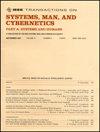基于离散控制Lyapunov函数的仿人步行足部位置补偿器设计
IEEE Transactions on Systems Man and Cybernetics Part A-Systems and Humans
Pub Date : 2021-04-01
DOI:10.1109/TSMC.2019.2912417
引用次数: 3
摘要
本文提出了一种基于轨道能量守恒和离散控制Lyapunov函数(DCLF)的在线足部位置补偿器(FPC),以提高仿人行走的鲁棒性,使仿人系统保持渐近稳定性,从而实现足部位置控制。在线FPC是基于线性模型预测控制(MPC),通过重新规划质心轨迹和合理放置脚步来抵抗外界干扰并恢复行走姿态。为了进一步提高仿人机器人对强外界干扰的鲁棒性,提出了一种上半身姿态控制策略。该控制器利用髋关节在线调节上半身姿态实现人形机器人的稳定。Webots仿真和NAO仿人机器人的真实实验验证了所提方法的有效性。本文章由计算机程序翻译,如有差异,请以英文原文为准。
Foot Placement Compensator Design for Humanoid Walking Based on Discrete Control Lyapunov Function
In this paper, an online foot position compensator (FPC) is proposed for improving the robustness of humanoid walking based on orbital energy conservation and discrete control Lyapunov function (DCLF), with which the asymptotic stability of the humanoid system can be maintained and, thus, the foot placement control is achieved. The online FPC is developed based on linear model predictive control (MPC) by replanning the trajectories of the center of mass (CoM) and properly placing the footsteps to resist external disturbances and recover the walking posture. To further improve the robustness of the humanoid robots to suppress strong external disturbance, a strategy of upper body posture control is proposed. The presented controller stabilizes the humanoid robot by utilizing hip joints to modulate the upper body posture online. Webots simulations and real experiments on a full-body NAO humanoid robot verify the effectiveness of the proposed methods.
求助全文
通过发布文献求助,成功后即可免费获取论文全文。
去求助
来源期刊
自引率
0.00%
发文量
1
审稿时长
6.0 months
期刊介绍:
The scope of the IEEE Transactions on Systems, Man, and Cybernetics: Systems includes the fields of systems engineering. It includes issue formulation, analysis and modeling, decision making, and issue interpretation for any of the systems engineering lifecycle phases associated with the definition, development, and deployment of large systems. In addition, it includes systems management, systems engineering processes, and a variety of systems engineering methods such as optimization, modeling and simulation.

 求助内容:
求助内容: 应助结果提醒方式:
应助结果提醒方式:


